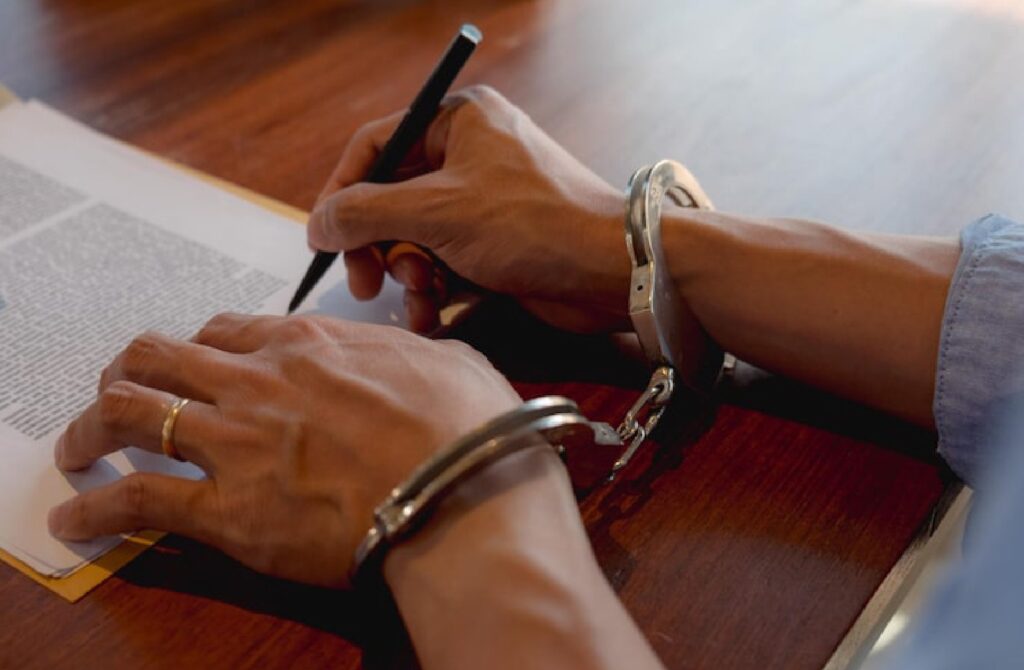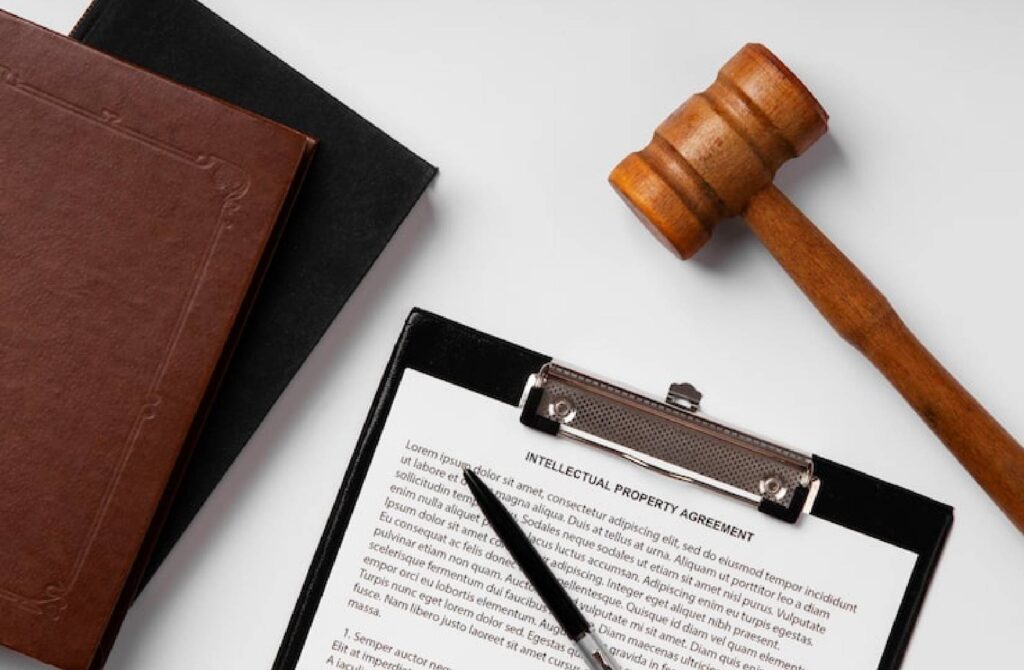Getting arrested can turn your world upside down in an instant. While many people believe that posting bail is a guaranteed right, the harsh reality is that bail denied situations happen more often than you might think. In Texas, judges have significant power to refuse bail requests, leaving defendants stuck behind bars for weeks, months, or even longer.
Understanding why your bail was denied is crucial for anyone facing criminal charges in the Lone Star State. Whether you’re dealing with your first arrest or helping a loved one navigate the legal system, knowing these common reasons can help you prepare better and make informed decisions about your case.
Understanding Bail in Texas: The Basics
Before diving into why bail denied decisions happen, it’s important to understand how the Texas bail system works. Bail serves as a financial guarantee that ensures defendants will appear for their court dates. When a judge sets bail, they’re essentially saying, “Pay this amount, and you can go home while you wait for trial.”
However, the Eighth Amendment to the U.S. Constitution, which prohibits excessive bail, doesn’t guarantee that bail will always be granted. Texas judges have broad discretion when making bail decisions, and they consider multiple factors beyond just the charges you’re facing.
When your bail request is denied, leaving you or your loved one in jail, it’s often because the judge believes that:
- Public safety would be at risk
- You might flee before trial
- You could interfere with the legal process
- The charges are too serious to warrant release

Reason 1: Flight Risk Concerns Lead to Bail Denied
One of the most common reasons for a bail denied decision involves the court’s concern that you might not show up for your trial. Texas judges carefully evaluate whether defendants pose a flight risk before setting bail amounts or denying bail altogether.
Factors That Increase Flight Risk Assessment
Several key factors can make judges more likely to issue a bail denied ruling based on flight risk concerns:
- Previous failures to appear in court: If you’ve missed court dates before, even for minor violations, this creates red flags for judges
- Weak community ties: Limited family connections, unemployment, or short residence periods in Texas can work against you
- Significant financial resources: Having substantial liquid assets or international connections might suggest you have the means to disappear
- Severe potential penalties: Facing life imprisonment or other harsh sentences creates a strong motivation to flee
- Immigration status issues: Non-citizens, especially those without legal status, may be viewed as higher flight risks
How Texas Courts Evaluate Community Ties
When determining if your bail request is warranted, Texas judges pay close attention to your roots in the community. They want to see evidence that you have reasons to stay and face your charges rather than disappearing.
Strong community ties that can help prevent bail denied decisions include:
- Steady employment history in the area
- Family members living nearby who depend on you
- Property ownership or long-term lease agreements
- Participation in community organizations or religious groups
- Children attending local schools
Reason 2: Serious Criminal Charges
The nature and severity of your charges play a huge role in whether you’ll face a bail denied situation. Texas law recognizes that certain crimes are so serious that releasing defendants could endanger public safety or make flight more likely.
Capital Offenses and Violent Crimes
When dealing with the most serious charges, rejected bail outcomes become much more common:
- Murder and Capital Offenses: First-degree murder charges, especially those involving aggravating factors, frequently result in automatic bail denials. The potential for life imprisonment or the death penalty creates powerful motivation for defendants to flee.
- Aggravated Violent Felonies: Charges like aggravated robbery, sexual assault, and aggravated assault often lead to bail denied rulings. Texas judges must balance the constitutional rights against community safety concerns.
- Repeat Violent Offenses: If you have a history of violent criminal behavior, judges are much more likely to issue bail rejection orders. A pattern of violence suggests that release might endanger public safety or lead to additional crimes.
Drug Trafficking and Organized Crime
Large-scale drug operations and organized criminal activities frequently result in bail denied decisions due to both flight risk and public safety concerns. These cases often involve:
- Substantial quantities of controlled substances
- Evidence of organized criminal networks
- Significant financial resources from illegal activities
- Potential for continued criminal operation while on bail
Reason 3: Public Safety Concerns
Protecting the community is one of the most important factors Texas judges consider when making bail decisions. When courts believe that releasing a defendant could endanger others, bail rejections become much more likely.
Domestic Violence Cases
Domestic violence charges receive special attention in Texas courts because of the high risk of continued abuse. Bail denied decisions are common in these cases because:
- Victims face immediate danger if the defendant is released
- Restraining orders don’t always provide adequate protection
- Domestic violence often escalates after an arrest
- The intimate nature of these relationships creates unique safety risks
Many Texas counties have specialized domestic violence courts that take these safety concerns very seriously when considering bail requests.
Gang-Related Activities
Gang-related charges create complex public safety issues that often result in bail denied outcomes. The organized nature of gang activity presents several concerns:
- Potential for witness intimidation through gang networks
- Risk of retaliation against victims or law enforcement
- Likelihood of continued criminal activity while on bail
- Access to weapons and other gang resources
Stalking and Harassment Cases
When charges involve ongoing stalking, harassment, or threatening behavior, carful bail decisions protect specific victims from continued abuse. These cases present:
- Immediate threats to identified individuals
- Psychological trauma for victims who fear for their safety
- Potential for escalated violence if contact continues
- Difficulty monitoring compliance with protective orders
Reason 4: Witness Intimidation Risks Create Bail Denied
The integrity of Texas’s judicial system depends on witnesses feeling safe to testify truthfully. When courts believe defendants might threaten, intimidate, or harm witnesses, bail denied decisions help protect both individuals and the legal process itself.
High-Profile Cases and Media Attention
Cases that receive significant media coverage create additional risks for witness safety, often leading to bail denied rulings. The public nature of these cases makes witnesses more visible targets for intimidation or retaliation.
Organized Crime and Complex Cases
Criminal organizations have both the resources and motivation to silence witnesses. Bail denied decisions in these cases recognize that:
- Traditional protective measures may be less effective
- Criminal networks can reach witnesses even under protection
- The sophisticated nature of organized crime requires enhanced security measures
- Multiple witnesses may be at risk simultaneously
Vulnerable Witness Populations
Cases involving vulnerable witnesses require extra protection, often resulting in the bail rejection outcomes:
- Children: Young witnesses need special protection from intimidation
- Elderly victims: Older individuals may be more susceptible to threats
- Mental health issues: Witnesses with psychological vulnerabilities require additional safeguards
- Previous intimidation: Any history of witness tampering creates strong presumptions against bail

Reason 5: Probation and Supervision Violations Lead to Bail Denied
If you’re already under court supervision when arrested on new charges, bail denied decisions become much more likely. Existing violations demonstrate problems following court orders and suggest that bail conditions might also be ignored.
New Charges While on Supervision
Getting arrested for new crimes while on probation or parole creates serious problems that often result in automatic bail denied decisions. These situations suggest that:
- Community supervision isn’t working effectively
- You present ongoing risks to public safety
- Court orders and restrictions don’t deter criminal behavior
- Additional crimes may occur if released on bail
Absconding from Supervision
If you’ve previously fled from probation or parole supervision, judges have strong reasons to deny your bail. Past absconding behavior creates powerful presumptions that you won’t comply with bail conditions either.
Reason 6: Additional Factors Contributing to Bail Denied
Beyond the main categories discussed above, several other factors can contribute to bail denied decisions in Texas courts.
Mental Health Considerations
Mental health issues can influence bail decisions in different ways. Sometimes, mental health problems lead to:
- Treatment-focused releases: Courts may order mental health treatment as a condition of bail
- Detention for evaluation: Bail denied while psychiatric assessments are being completed
- Safety concerns: Mental health crises might pose risks to the defendant or others
- Competency questions: Inability to understand charges or assist in defense
Substance Abuse Problems
Drug and alcohol addiction often complicates bail decisions. While addiction might explain criminal behavior, it also suggests potential for continued problems without treatment. Judges must balance rehabilitation opportunities with public safety concerns when considering bail denied requests.
Financial Circumstances
Your financial situation affects both flight risk assessment and bail setting. The irony is that:
- Wealthy defendants might be able to post high bail amounts, but are seen as flight risks
- Poor defendants might be detained on relatively small bail amounts that they can’t afford
- Financial instability can contribute to bail rejection decisions
How Bring ’em Home 24/7 Bail Bonds Can Help
When you’re facing a bail denied situation in Fort Worth, Texas, having experienced professionals on your side makes a crucial difference. Bring ’em Home 24/7 Bail Bonds understands the complex factors that lead to bail denied decisions and works tirelessly to help families navigate these challenging circumstances.
Our Expertise in Texas Bail Law
Our team of seasoned bail bond agents in Fort Worth, TX, brings over 10 years of experience handling complex bail situations. We understand that bail denied decisions don’t always mean the end of the road. Our knowledge includes:
- Texas bail law and procedural requirements
- Strategies for bail review hearings and appeals
- Working with attorneys to present compelling arguments for bail reconsideration
- Understanding local court practices and judge preferences
Comprehensive Support for Families
At Bring ’em Home 24/7 Bail Bonds, we recognize that bail denied situations create tremendous stress for entire families. Our reliable bail bond services in Fort Worth, TX, extend beyond just posting bail to include:
- 24/7 availability: We’re always ready to help when legal emergencies arise
- Flexible payment plans: Financial constraints shouldn’t prevent you from fighting for your loved one’s freedom
- No credit check required: We work with clients regardless of their credit history
- Compassionate guidance: We explain the bail process and help families understand their options
Serving Fort Worth and Tarrant County
Our bail bonds in Tarrant County, TX services cover Fort Worth and all surrounding areas. We provide fast, professional assistance to families dealing with bail denied situations throughout the region.
Working with Your Legal Team
While Bail Bonds in Arlington, TX, and throughout the Fort Worth area are our specialty, we also coordinate closely with defense attorneys to address bail denied situations. This collaborative approach includes:
- Providing detailed information about detention conditions
- Supporting bail review motions with relevant documentation
- Ensuring a rapid response when bail is eventually granted
- Maintaining communication with all parties throughout the process

Take Action Today – Don’t Let Bail Denial Keep Your Family Apart
If you or a loved one is facing a bail denied situation in Fort Worth, Texas, don’t wait to seek professional help. Every day spent in jail is another day away from family, work, and the ability to actively participate in building your defense.
At Bring ’em Home 24/7 Bail Bonds, we’re committed to reuniting families and helping defendants navigate the complex Texas legal system. Our experienced team understands that bail rejection doesn’t have to mean hopeless, and we’ll work tirelessly to explore every available option for securing your freedom.
Contact Bring ’em Home 24/7 Bail Bonds for a free consultation about your legal situation. We’re available 24/7 because we know that legal emergencies don’t wait for business hours. Our compassionate, professional team will explain your options, work with your attorney, and fight to bring your loved ones home where they belong.

